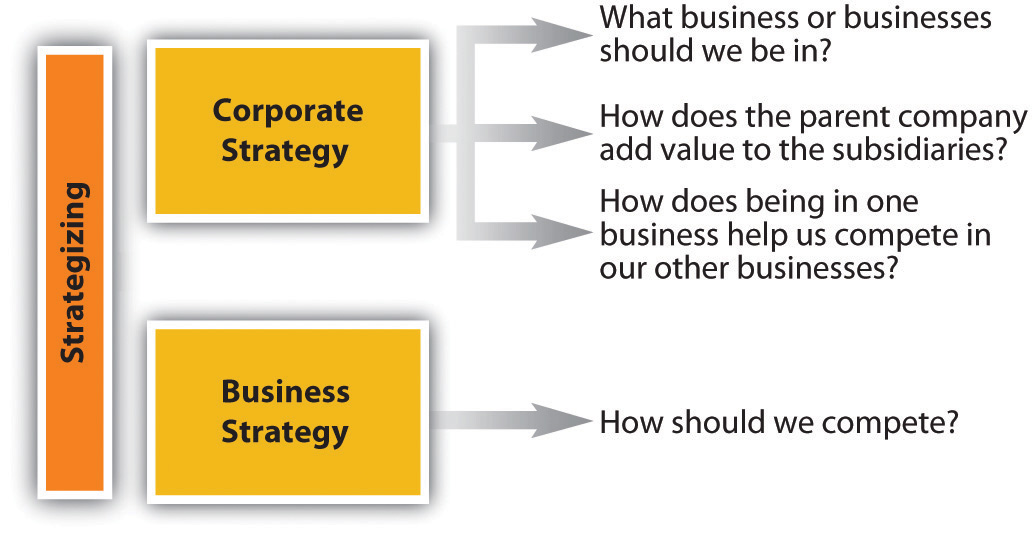In the complex world of corporate management, understanding the distinction between corporate strategy and business strategy is essential for steering an organization toward success. At first glance, these two terms may appear interchangeable, yet they encompass distinctly different scopes and functions within the organizational framework.
Corporate strategy primarily focuses on the overarching goals and direction of an entire organization, including decisions about resource allocation, mergers and acquisitions, and diversification. On the other hand, business strategy hones in on how a specific business unit positions itself within its market to effectively compete and create value.
This nuanced interplay between the two strategies shapes not only the growth trajectory of companies but also their ability to adapt in an ever-evolving market landscape. As we delve deeper into these concepts, we’ll explore how leveraging the strengths of both strategies can propel organizations to new heights of achievement and resilience.
Introduction to Corporate and Business Strategy

In the realm of organizational dynamics, understanding the distinction between corporate strategy and business strategy is pivotal for steering a company towards success. Corporate strategy encompasses the overarching goals and direction of the entire organization, guiding decisions that affect multiple business units and resource allocations.
On the other hand, business strategy dives into the specifics of how individual units compete effectively within their respective markets, focusing on customer needs, competitive positioning, and operational efficiency. This interplay is not merely academic; it plays a crucial role in how resources are mobilized and aligned to create value.
As organizations navigate an ever-evolving landscape marked by uncertainty and competition, grasping these nuances becomes essential not only for survival but for thriving in an increasingly complex business world.
Defining Corporate Strategy

Defining corporate strategy is essential to comprehending how an organization positions itself within the ever-evolving landscape of global business. At its core, corporate strategy outlines the overarching framework that guides an enterprises long-term objectives and direction, identifying the markets it will compete in and the resources it will allocate to achieve a competitive edge.
This strategic blueprint encompasses critical decisions about mergers and acquisitions, diversification, and resource allocation across various business units. Unlike business strategy, which hones in on specific operational tactics to outperform rivals within a single market, corporate strategy takes a broader view, ensuring that all elements of the organization align harmoniously to foster sustainable growth and resilience amidst market fluctuations.
Its a delicate balancing act, one that requires not just analytical prowess but also an intuitive grasp of the complex interplay between different sectors, industries, and external forces that shape business dynamics.
Defining Business Strategy

Defining business strategy involves a nuanced comprehension of how a company positions itself within its specific market. It’s not merely about the products or services offered; its the intricate dance of understanding customer needs, competitive forces, and operational capabilities. A well-crafted business strategy outlines clear objectives, prioritizing key initiatives that drive market share and profitability.
It considers factors like differentiation—how a business stands apart from competitors—and cost leadership—achieving a competitive edge through efficiency. Crafting such a strategy requires significant insight and foresight, where leaders must anticipate market shifts while remaining agile enough to pivot when necessary.
Within this dynamic environment, effective business strategy serves as both a roadmap and a compass, guiding organizations toward sustainable success and aligning their resources to capitalize on emerging opportunities.
Conclusion
In conclusion, understanding the distinctions between corporate strategy and business strategy is crucial for any organization aspiring to achieve long-term success. While corporate strategy outlines the overarching goals and direction of an organization, business strategy focuses on how individual units can compete effectively within specific markets.
A clear comprehension of both strategies enables leaders, including cofounders, to make informed decisions that align resources and capabilities with competitive opportunities. By harmonizing corporate and business strategies, organizations can not only enhance their operational efficiency but also foster innovation and adaptability in an ever-evolving marketplace.
Ultimately, striking the right balance between the two is key to driving sustainable growth and achieving overall organizational objectives.


